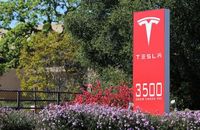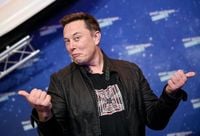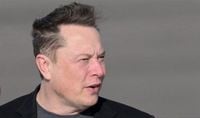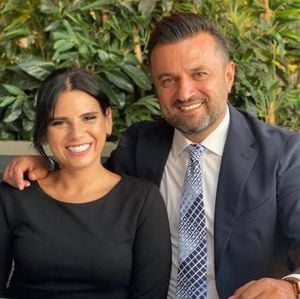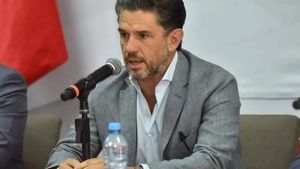A former engineer turned whistleblower is preparing to relaunch her defamation lawsuit against Tesla and Elon Musk after a federal appeals court overturned a previous ruling that had dismissed her case. Cristina Balan, who worked as a mechanical engineer at Tesla, raised safety concerns in 2014 about the design of the Model S, specifically that carpets could curl under the pedals and interfere with braking, the BBC reported. After her warnings were reportedly ignored, Balan was fired and later accused by Tesla of using company resources for a "secret project" — allegations she says are false and defamatory.
Balan's journey with Tesla began in 2010, and by 2014, she had become increasingly concerned about safety issues related to the Model S. She discovered that carpets could potentially curl under the pedals, posing a hazard that could impair braking. Despite her attempts to alert her superiors, including sending an email to Elon Musk himself, her concerns were dismissed. Instead of addressing her safety warnings, Balan faced backlash from management, leading to her forced resignation.
Following her termination, Balan initially won a wrongful termination suit, receiving over $320,000 in compensation in 2017. However, her battle was far from over. In January 2019, she filed a separate defamation lawsuit against Tesla and Musk in the US District Court for the Western District of Washington. This suit aimed to clear her name after Tesla publicly accused her of embezzlement and kickbacks in a 2017 article by the Huffington Post. Balan claims these allegations have severely damaged her career, making it impossible for her to find employment in her field.
However, her defamation case faced significant hurdles. Tesla sought to move the case to arbitration, citing an employment agreement that required disputes to be resolved outside of court. In November 2021, an arbitrator dismissed her claims based on California's statute of limitations, stating too much time had passed since the alleged defamatory statements were made. This ruling was later confirmed by a district court in September 2022, effectively sidelining Balan's case.
In a surprising turn of events, the Ninth Circuit Court of Appeals ruled in early April 2025 that the lower court lacked jurisdiction to confirm the arbitration award. This ruling not only nullified the previous dismissal but also reopened the door for Balan's defamation suit. Speaking to the BBC, Balan expressed her readiness to “take on Elon Musk in open court,” emphasizing her desire to restore her reputation after years of public accusations and legal battles.
Her attorney, William Moran II, who joined her case after she struggled to represent herself, noted the significance of the recent ruling. He described the previous arbitration process as fundamentally flawed, stating, "the result is completely irrational and offends due process." Moran's involvement has been pivotal in navigating the complexities of Balan's legal situation, particularly after she was diagnosed with stage-3B breast cancer shortly after appealing the district court's decision.
Legal experts suggest that while the Ninth Circuit's ruling strengthens Balan's position, the process could still take years to resolve. Tesla, which has not publicly commented on the latest ruling, may attempt to push for arbitration again. However, Balan's legal team is exploring options to either restart arbitration or move directly to a courtroom trial.
As Balan prepares to relaunch her defamation lawsuit, she reflects on the toll that the accusations have taken on her life. Her son, who was just seven years old when the allegations first surfaced, is now 15 and has witnessed the impact of the legal battles on his mother. Balan hopes to clear her name not only for her own sake but also for her son's, who deserves to know the truth about his mother's character.
The outcome of Balan's renewed legal efforts could set a significant precedent for future cases involving corporate whistleblowers. As more individuals like Balan come forward with similar experiences, the implications of this case may extend beyond her personal fight against Tesla, potentially influencing how companies handle allegations of misconduct and the legal protections available to whistleblowers.
In the wake of the Ninth Circuit's decision, Balan's case stands as a testament to resilience in the face of adversity. With her health in remission and a renewed sense of purpose, she is determined to reclaim her narrative and seek justice against the powerful forces that sought to silence her.
As the legal proceedings unfold, Balan remains hopeful that her story will inspire others to stand up for their rights and challenge injustices within their workplaces. Whether through arbitration or a public trial, she is ready to confront the challenges ahead and finally have her day in court.
